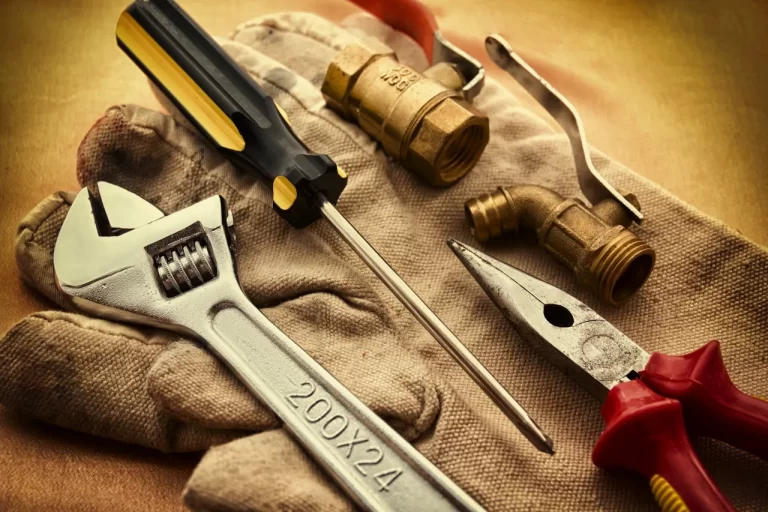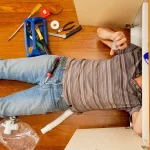Is that dripping faucet or slow drain becoming a problem? It may be tempting to put off addressing a minor plumbing issue, but it’s important to recognize when a small issue could potentially escalate into a major disaster. Whether it is a leaky pipe, a clogged sewer line, or a malfunctioning water heater, ignoring a plumbing issue can lead to extensive damage to your home and costly repairs. In this article, we will explore how to identify if your plumbing issue requires immediate attention.
By paying attention to certain signs, like unusual noise, foul odors, or water discoloration, you can assess the severity of your plumbing issue. We will discuss these warning signs and provide guidance on when it’s time to call in a professional plumber. Don’t underestimate the impact of a minor plumbing problem – it’s always better to be safe than sorry. Read on to learn how to identify if your plumbing issue requires immediate attention and avoid a potential disaster.
Common plumbing issues and their causes:
Plumbing issues can occur in any home, regardless of age or size. It’s important to understand the common problems and their underlying causes to determine if immediate attention is required.
One of the most common plumbing issues is a leaky pipe. This can be caused by various factors such as corrosion, high water pressure, or improper installation. Even though a leaky pipe may only drip a little at first, if it goes unchecked, it can cause serious water damage. and even structural issues in your home.
Another common problem is a clogged sewer line. This can be caused by a buildup of debris, tree root intrusion, or even collapsed pipes. A clogged sewer line can lead to sewage backup, which not only causes foul odors but can also pose health risks to you and your family.
Water heaters are another potential source of plumbing issues. A malfunctioning water heater can result in inconsistent water temperature, insufficient hot water supply, or even leaks. Ignoring these issues can lead to further damage to the water heater and potential flooding.
When it comes to plumbing issues, prevention is key. Regular maintenance and inspection can help identify potential problems before they become major disasters. Understanding the common issues and their causes is the first step in recognizing if your plumbing issue requires immediate attention.
Signs that your plumbing issue:
While some plumbing issues may seem minor at first, there are certain signs that indicate a problem that requires immediate attention. By being aware of these warning signs, you can take action before the situation worsens.
Unusual noise coming from your plumbing system is often a sign of an underlying issue. If you hear banging or knocking sounds when turning on the faucet or flushing the toilet, it could indicate a problem with your water pressure or the pipes themselves. These noises should not be ignored, as they can be an early indication of a potential disaster.
Foul odors emanating from your plumbing fixtures or drains are another red flag. If you notice a persistent sewage smell or any other unpleasant odor, it could indicate a sewer line problem or a buildup of organic matter in your pipes. These odors can not only be unpleasant but also indicate a potential health hazard.
Water discoloration is yet another sign that your plumbing issue requires immediate attention. If you notice brown or rusty water coming out of your faucets, it could indicate a corroded pipe or a problem with your water supply. Discolored water may also contain harmful contaminants, making it unsafe for use.
Other signs that should not be ignored include low water pressure, slow drainage, or sudden spikes in your water bill. These can all be indicators of a plumbing issue that requires immediate attention. It’s important to address these problems promptly to prevent further damage and costly repairs.
The dangers of neglecting plumbing issues
Neglecting plumbing issues, no matter how minor they may seem, can have serious consequences. Ignoring a plumbing problem can lead to extensive damage to your home, potentially costing you thousands of dollars in repairs.
A minor leak, if left unattended, can quickly escalate into a major disaster. The constant dripping of water can cause damage to walls, ceilings, and flooring, leading to mold growth and structural issues. Additionally, the water wasted from a leaky pipe can significantly impact your water bill.
Clogged sewer lines can cause sewage backup, which is not only unsanitary but can also pose health risks. Sewage contains harmful bacteria and pathogens that can contaminate your home’s water supply and expose you and your family to serious illnesses.
A malfunctioning water heater can also cause significant damage if not addressed promptly. A leaky water heater can result in flooding, damaging your belongings and potentially causing electrical hazards. Inconsistent water temperature can make daily tasks such as showering or washing dishes uncomfortable and inconvenient.
Neglecting plumbing issues not only puts your home at risk but also impacts your quality of life. It’s important to address any plumbing problem as soon as it is identified to prevent further damage and ensure the safety and comfort of your home.
Steps to take when you notice a minor plumbing leak
When you notice a minor plumbing leak, it’s important to take immediate action to prevent it from becoming a major disaster. Here are some steps you can take:
• Shut off the water supply: Locate the main water shut-off valve in your home and turn it off to stop the flow of water. This will help prevent further damage while you address the leak.
• Assess the extent of the leak: Determine the severity of the leak by inspecting the affected area. Is it a small drip or a steady flow of water? Assessing the extent of the leak will help you determine the urgency of the situation.
• Attempt a temporary fix: If the leak is minor and you have basic plumbing skills, you can try to fix it temporarily. Use a plumber’s tape or a pipe clamp to seal the leak until you can get professional help.
• Call a professional plumber: Even if you are able to temporarily fix the leak, it’s important to call a professional plumber to assess and repair the problem. A qualified plumber will have the expertise and tools necessary to address the issue properly.
Taking immediate action when you notice a minor plumbing leak can help prevent further damage and save you from costly repairs in the long run. Remember, it’s always better to be safe than sorry when it comes to plumbing issues.
Calling a professional plumber
While some minor plumbing issues can be fixed with basic DIY skills, it’s essential to know when it’s time to call in a professional plumber. Here are some instances where professional help is necessary:
• Sewer line issues: If you suspect a clogged or damaged sewer line, it’s best to call a professional plumber. Sewer line repairs require specialized equipment and expertise to ensure that the problem is properly addressed.
• Water heater problems: If your water heater is malfunctioning or leaking, it’s important to seek professional help. Water heaters involve complex electrical and plumbing systems, and attempting to fix the issue yourself can be dangerous.
• Major leaks: If you have a major plumbing leak that is causing significant water damage or flooding, it’s crucial to call an emergency plumber immediately. They will have the necessary tools and experience to quickly fix the issue and minimize the damage.
• Persistent plumbing issues: If you have recurring plumbing issues that keep coming back despite your attempts to fix them, it’s time to call a professional. They can identify the underlying cause of the problem and provide a long-term solution.
When choosing a professional plumber, be sure to do your research and hire a licensed and insured professional. Ask for recommendations from friends or family, read online reviews, and get multiple quotes before deciding.





